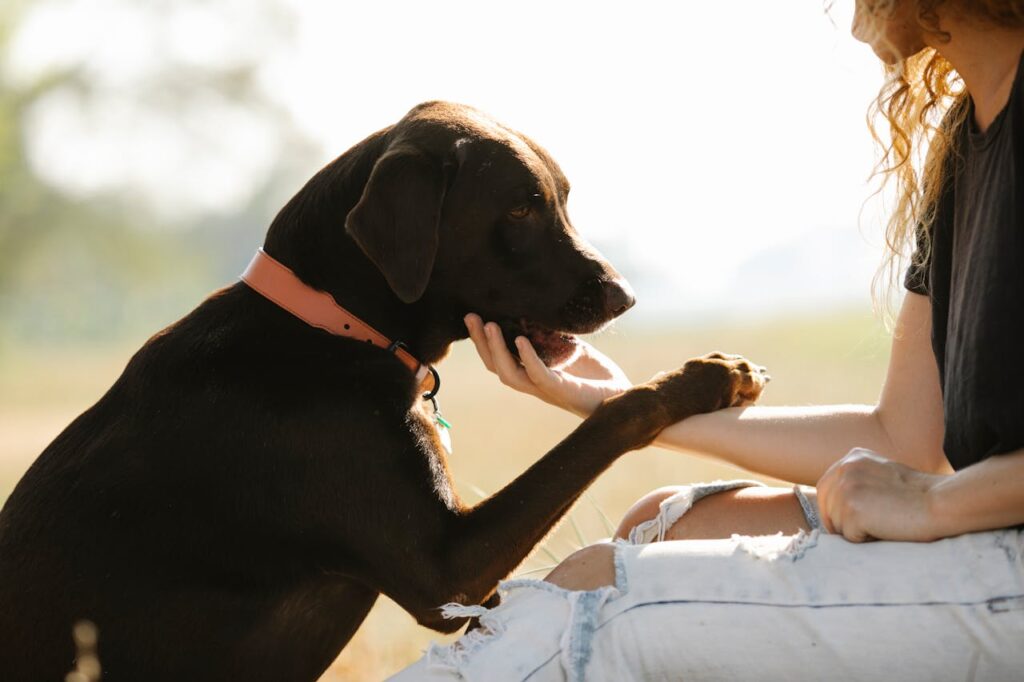
Introduction
If you’re looking for a dog that matches your active lifestyle, the Brittany might just be your perfect companion. Known for their boundless energy, intelligence, and affectionate nature, these dogs are a dream for owners who love the outdoors. But before you commit, it’s worth digging deeper into what life with a Brittany really looks like.
History and Origin
The Brittany, also called the Brittany Spaniel in the past, hails from the Brittany region of France. Originally bred as a bird-hunting dog in the 17th century, it quickly became a favorite among hunters for its keen sense of smell and tireless work ethic. Over time, the Brittany evolved into a versatile companion, excelling both in the field and at home.
Physical Characteristics
Brittanys are medium-sized, athletic dogs built for speed, agility, and endurance. They strike a perfect balance between strength and grace, making them excellent sporting companions as well as affectionate family pets.
Key Physical Traits:
- Height: 17–21 inches (at the shoulder)
- Weight: 30–40 pounds on average
- Build: Compact, muscular, and well-proportioned
- Coat Type: Soft, dense, and slightly wavy or flat
- Coat Colors: White with orange or liver patches, sometimes with roaning (freckles)
- Tail: Naturally short or docked, usually under 4 inches
- Eyes: Expressive, amber or hazel, radiating alertness and warmth
- Ears: Set high, of medium length, with soft feathering
Their coat is more than just beautiful — it’s practical. The dense, weather-resistant fur helps protect them while working outdoors, whether in thick brush or chilly fields. Their coloration often serves as natural camouflage in hunting environments.
The Brittany’s expressive eyes are one of its most endearing traits. They seem to sparkle with intelligence and enthusiasm, giving the dog an approachable, friendly appearance that instantly wins hearts.
Personality and Temperament
The Brittany’s temperament is a delightful mix of friendliness and determination. They’re social butterflies, happy to meet new people and generally good with children. With the right socialization, they get along well with other dogs and even cats, although their hunting instinct may kick in with smaller pets.
What stands out most is their boundless enthusiasm — they rarely have an “off” switch unless you’ve spent the day tiring them out.
Exercise Needs
A Brittany without exercise is like a Ferrari sitting in a garage — a waste of potential and a recipe for frustration. They thrive on at least an hour or two of vigorous daily activity.
Ideal Sports and Games
- Long hikes or runs
- Agility courses
- Frisbee and fetch marathons
- Swimming sessions
Without sufficient activity, Brittanys can become restless, destructive, and even anxious.
Mental Stimulation
Physical activity is only half the story. Brittanys are thinkers, and they need brain workouts just as much as body workouts. Obedience training, scent games, and puzzle feeders keep them sharp and happy. A bored Brittany will invent its own entertainment — usually in ways you won’t appreciate.
Training the Brittany
Training a Brittany can be a joy if you approach it with patience and consistency. They respond best to positive reinforcement, such as treats and praise. Early socialization is crucial to help them adapt to new environments and people.
Common Behavioral Issues
- Over-excitement when meeting new people
- Jumping up on visitors
- Chasing wildlife
Most of these can be managed with consistent boundaries and early training.
Grooming Requirements
Brittanys are relatively low-maintenance in the grooming department. A weekly brushing keeps their coat healthy and free of tangles. Bathing once every few months (unless they find something wonderfully muddy) is enough. Regular ear cleaning is essential, as their floppy ears can trap moisture and lead to infections.
Health Considerations
Like all breeds, Brittanys have some predisposed health concerns, such as hip dysplasia, epilepsy, and certain eye conditions. With proper care, they often live 12–14 years. Annual vet checkups, vaccinations, and preventive care can help them live a long, active life.
Feeding and Nutrition
A balanced diet is key to keeping a Brittany’s energy levels stable. High-quality kibble or raw diets rich in protein and healthy fats are ideal. Portion control is important — these dogs will happily eat beyond their needs if given the chance.
Living Arrangements
While Brittanys can adapt to various living situations, they truly thrive in homes with ample outdoor space. Apartment living is possible but challenging, as you’ll need to compensate with extra exercise sessions. A securely fenced yard is a big plus.
Cost of Ownership
Owning a Brittany involves more than the initial purchase or adoption fee. Expect expenses for food, vet care, training, grooming supplies, and toys. On average, monthly costs can range from $100–$200, excluding any emergencies or health issues.
Pros and Cons of Owning a Brittany
Pros
- Perfect for active owners
- Friendly and social
- Highly trainable
Cons
- High energy can overwhelm less active owners
- Needs plenty of mental stimulation
- Potential for destructive behavior without exercise
Is the Brittany Right for You?
If you enjoy an active, outdoor lifestyle and have the time to invest in training and exercise, the Brittany can be an amazing companion. However, if you prefer quiet evenings and low-maintenance pets, you might want to consider a calmer breed.
Conclusion
The Brittany is not just a dog — it’s a lifestyle. They’ll push you to get outside, keep you laughing with their goofy energy, and reward you with unwavering loyalty. If you can match their zest for life, you’ll have a friend who’s always ready for the next adventure.
FAQs
1. Are Brittanys good for first-time dog owners?
Yes, if the owner is active and committed to training. Their energy can be overwhelming otherwise.
2. Do Brittanys bark a lot?
They’re not excessive barkers but will alert you to strangers or unusual noises.
3. Can Brittanys live in hot climates?
Yes, but you should avoid intense activity during the hottest parts of the day.
4. How much grooming does a Brittany need?
Minimal compared to long-haired breeds — weekly brushing and regular ear checks are key.
5. Are Brittanys hypoallergenic?
No, they shed moderately and produce allergens like most dogs.

